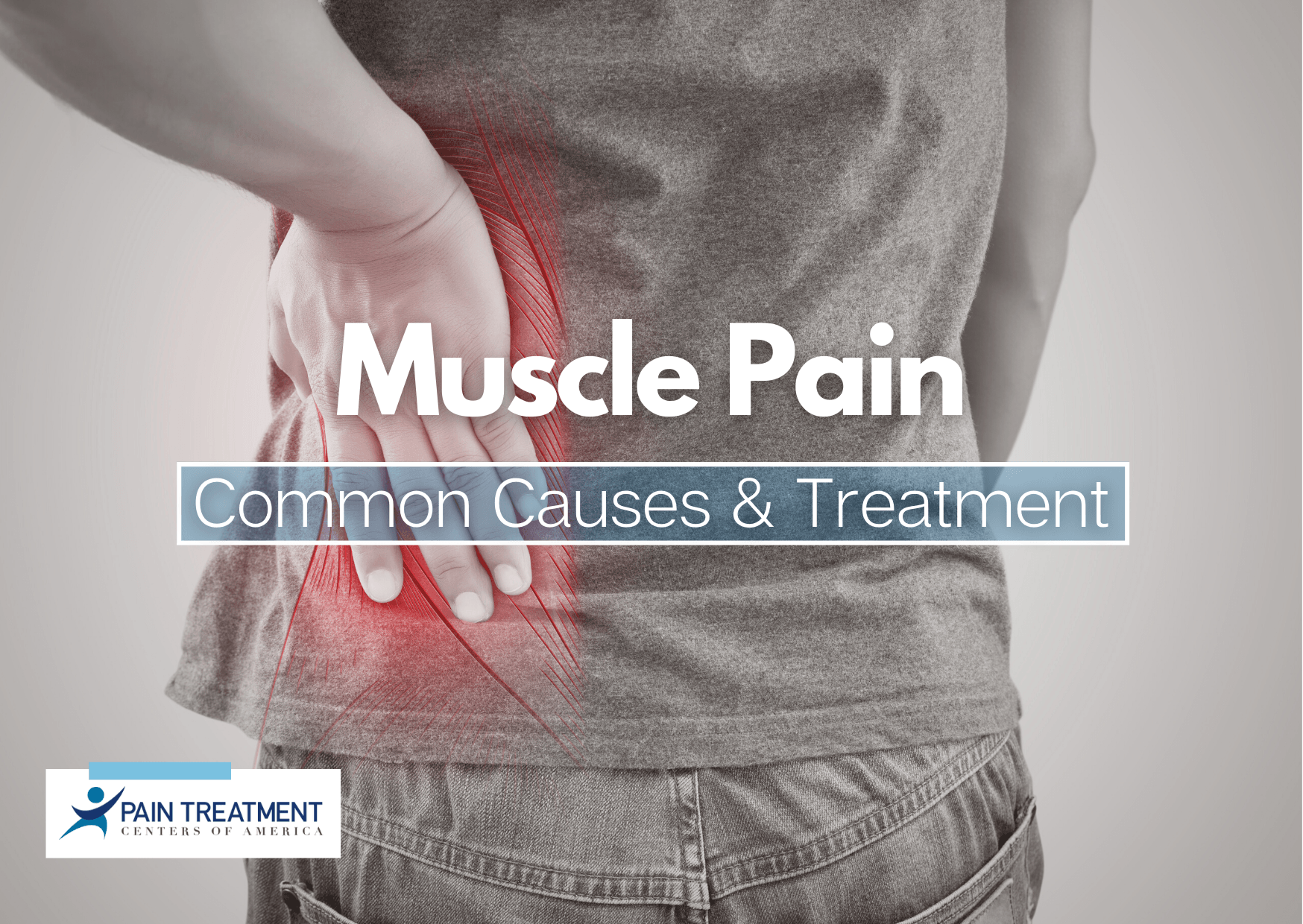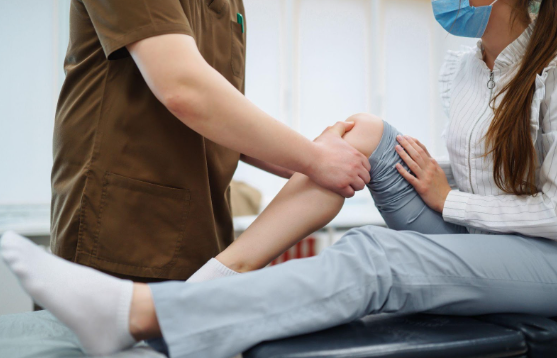Muscle Pain | Most Common Causes & Treatment

Muscle pain can be extremely challenging and difficult to cope with, especially when you're performing different types of activities each day. Not all muscle pain is the same, which can make it challenging to know what is causing it. There are a few common causes of muscle pain and treatments to ensure you can alleviate the discomfort and feel like yourself again.
Muscle Tension
Muscle tension is one of the most common causes of muscle pain and can develop in a specific area of the body. This can be due to the reduced blood flow that can be caused by anxiety and stress. When you experience stress and anxiety, the blood vessels start to constrict, which prevents as much blood from reaching the different muscles and tendons in the body. This causes the muscles to feel more tense and sore.
One of the best ways to alleviate muscle tension is to move more and stay physically active. This improves circulation to ensure your muscles start to feel more relaxed. Gentle or isolated light stretching is also effective and can remove the tension that is present where you're feeling it most.
Meditation can also be effective if you practice it for 10 to 30 minutes before bed. This will also work well to improve your sleep quality and help you feel more relaxed when you wake up in the morning.
Overusing Specific Muscles
Muscle pain can occur when you overuse them while working, exercising, or performing different types of activities each day. The muscles can start to feel stiff and achy due to wear and tear, which can eventually lead to injuries. The muscle fibers never have a chance to repair themselves and can prevent blood from flowing to the muscles, leading to discomfort and pain over time.
When performing repetitive motions each day, it's important to use supportive equipment or a brace that prevents too much strain from being placed on the muscles. You can also perform different types of stretches that include spinal twists and forward folds to loosen up the muscles and improve blood circulation. If you fail to perform the right stretches, it can eventually lead to chronic pain that is more challenging to treat.
Muscle Cramps
Muscle cramps can also cause muscle pain to be triggered, especially for those who have nutrient deficiencies and are low in magnesium. Muscle cramps are also caused by too much physical labor or spending a lot of time in warm weather.
Muscle injuries or sprains can also cause pain to be triggered in the muscles. This is due to the ligaments being stretched or tearing. Medical professionals recommend icing the area to treat the inflammation and pain. It's also important to elevate the affected area and apply compression. Pain, swelling, and bruising are all common when sprains occur. It's important to see a doctor if you can't move or apply any weight to the affected area. Obtaining medical care is also necessary if the muscles start to become numb or if there's a pain in the bones where the injury occurred.
If the sprain is severe and doesn't heal easily, it may require surgery to repair the tissues and restore the individual's mobility. Sprains are most common on the knees, wrists, thumbs, and ankles.
Fibromyalgia
In some cases, muscle pain can be caused by fibromyalgia, which is due to amplified pain sensations that cause the spinal cord to process pain signals differently. The symptoms are often triggered after trauma occurs or if the individual experiences psychological stress. The pain often feels dull and achy and tends to last for several months before it starts to subside. The discomfort is experienced as being constant, making it challenging to perform different types of activities or even work.
Many different types of prescription medications are available to treat the pain associated with fibromyalgia, although there isn't a cure for the condition.
Electrolyte Imbalance
An imbalance of electrolytes in the body can also cause muscle pain to develop due to mineral depletion that starts to occur. A lack of magnesium, potassium, and calcium can all cause the electrolytes to be thrown off and for the muscles to be directly affected. Many people are surprised to learn that drinking too much water can cause this to occur. Using diuretics or contracting the stomach flu can also lead to muscle aches and pains.
The cramping causes the muscles to contract on different areas of the body, which is often uncomfortable and affects many people's mobility. This can also make it challenging to get adequate sleep. The muscles can start to twitch at random times and may even cause convulsions.
Medication Side Effects
Many different types of prescription medications can cause muscle pain to develop once they enter the system. Some of the most common medications that can trigger discomfort include antibiotics, breast cancer medications, medications that lower cholesterol levels, and even asthma inhalers. Some antidepressants and acne treatment medications can also lead to muscle pain. An average of 14 percent of women who take estrogen medication may also experience muscle and joint pain. Six percent of people who take anti-seizure medication also start to have pain. Fortunately, other types of medications are available to ensure the condition is treated without suffering from any pain in the process.
It's important to speak to your physician if you start to experience muscle pain after taking certain medications. They can consider other types of treatment methods that are available or even adjust your dose to ensure you can feel relief again.
Getting to the root of muscle pain is crucial in treating the discomfort and restoring your mobility. Working with a medical professional can also allow you to undergo the necessary tests to determine if any underlying conditions are present. Check out our website to contact us or to find your closest Pain Treatment Center of America.













